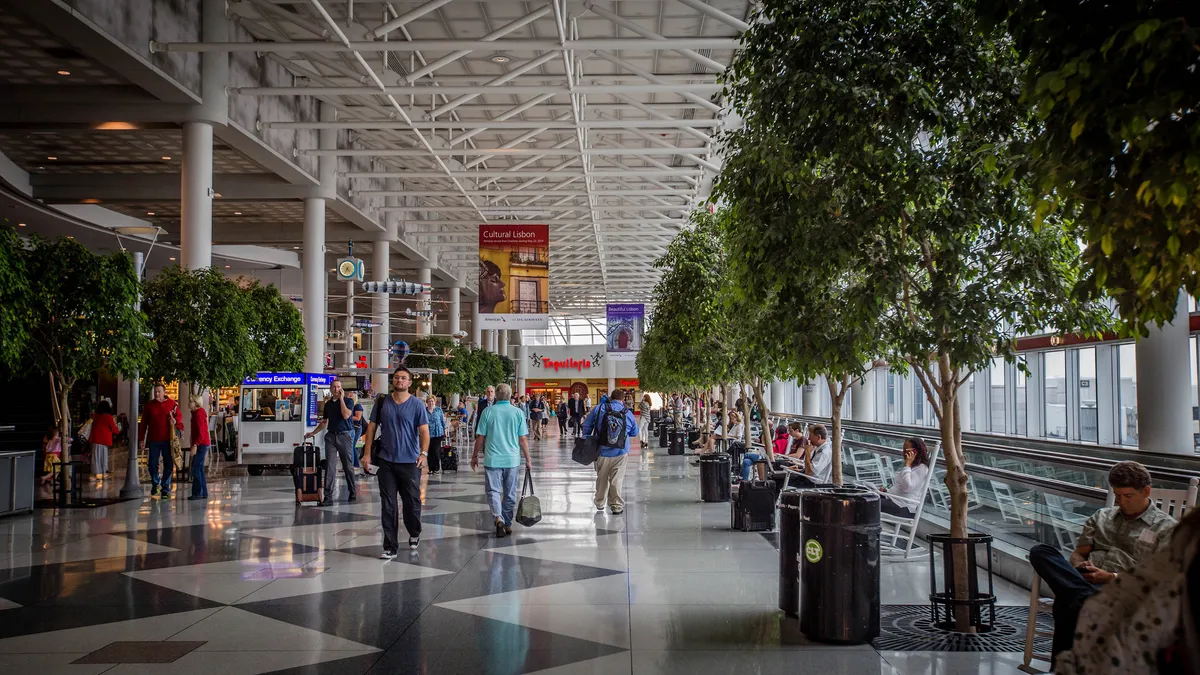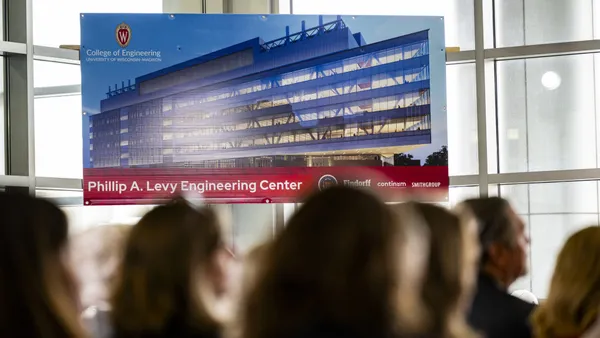Dive Brief:
- Charlotte-Douglas International Airport in Charlotte, North Carolina, is underway with a $2.5 billion capital plan, Destination CLT, that will expand and modernize the facility, allowing the airport to accommodate an expected increase in passenger flow.
- Projects under construction include the addition of commercial and passenger pick-up and drop-off lanes and a reconfiguration of the airport's roadways to accommodate more traffic and a future terminal expansion ($50 million); nine gates, and associated infrastructure, at Concourse A ($200 million); a 51,000-square-foot, three-level addition at Concourses D and E that includes pet and children's areas, a food court and 12,000 square feet of office space ($29 million); and terminal improvements and renovations ($70 million). Projects in the design and planning stages include a 25,000-square-foot expansion of Concourse E ($30 million); a terminal lobby expansion ($247 million); a fourth runway ($422 million); a 16-gate expansion of Concourse A ($300 million); a 10 to 12 gate expansion of Concourse C ($463 million); an 8 to 10 gate expansion of Concourse B ($463 million); and an air traffic control tower with no current cost estimate.
- All projects are expected to be completed by 2026. Financing comes from a combination of general airport revenue bonds, passenger facility charge (PFC) income and Federal Aviation Administration (FAA) airport improvement program (AIP) grants. Approximately $1.2 billion of projects do not have an identified funding source yet.
Dive Insight:
The expected AIP grant money is earmarked for the runway project at Charlotte-Douglas, as the FAA does not typically provide money for big terminal expansions. During the fiscal year 2017, the FAA awarded a total of approximately $3.3 billion of AIP grants, ranging from about $25,000 for minor repairs to more than $49 million for a major runway project at Dallas-Fort Worth International Airport.
Airports would have more to spend on renovation and expansion projects if Congress, as part of the $1.3 trillion spending bill passed earlier this year, had authorized the elimination of a cap on PFC charges. The maximum charge allowed is $4.50 per passenger, which some airport advocates claim is not enough to keep up with necessary modernization and capacity-related efforts.
And airports are beginning to feel the pinch. According to industry experts like T.J. Schulz, president of the Airport Consultants Council, airports have made all the Band-Aid fixes they can in trying to keep up with an increased passenger counts and new technology and are being forced to make major renovations or replace outdated facilities.
Architectural Record recently reported that U.S. airports can expect to see at least $70 billion in construction projects in the next three years. How to pay for them will be a major topic of discussion going forward.













